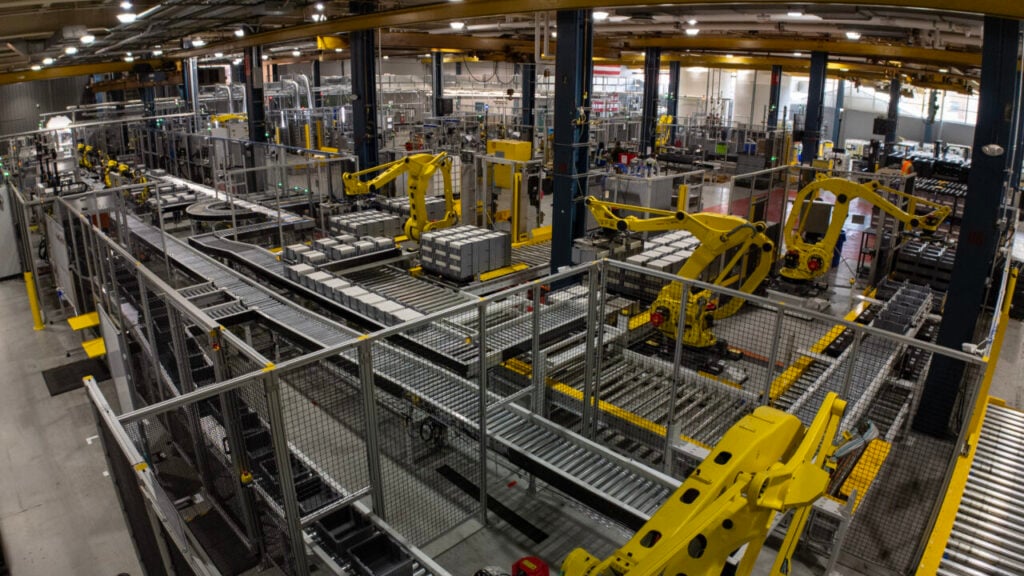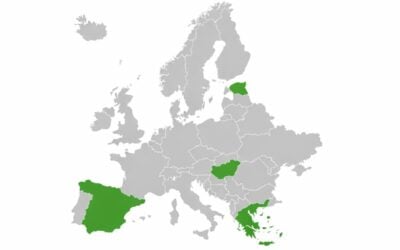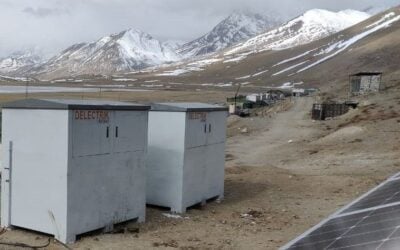
US non-lithium battery technology companies Eos Energy Enterprises and Unigrid have announced partnerships to deploy their tech abroad, striking deals in the UK and India, respectively.
Eos Energy Enterprises targets 5GWh in UK with Frontier Power
Zinc hybrid cathode battery firm Eos Energy Enterprises has signed a memorandum of understanding (MOU) with UK developer Frontier Power for a 5GWh framework agreement for Eos’ Znyth battery technology.
The agreement covers Frontier Power’s projects it plans to submit into the first application window of Ofgem’s new long-duration energy storage (LDES) cap and floor scheme. It is Eos’ first foray outside of the US, but Eos said the collaboration could extend to international markets too. The agreement will add to Eos’ pipeline numbers starting from March 31, 2025.
Frontier Power also recently announced a deal with another non-lithium battery company, vanadium redox flow battery (VRFB) firm Invinity Energy Systems, to submit bids for projects in the LDES scheme with Invinity’s tech too.
Try Premium for just $1
- Full premium access for the first month at only $1
- Converts to an annual rate after 30 days unless cancelled
- Cancel anytime during the trial period
Premium Benefits
- Expert industry analysis and interviews
- Digital access to PV Tech Power journal
- Exclusive event discounts
Or get the full Premium subscription right away
Or continue reading this article for free
The developer has now signed a joint development agreement with Ethos Green Energy for exclusive access to multiple grid connection points which could support up to 20GWh of LDES projects using multiple technology solutions, Invinity recently said.
Frontier has reserved up to 2GWh of Invinity’s manufacturing, but the Eos announcement is further evidence of it considering multiple different technologies.
Last month, Eos said it expects 2025 revenues to be around ten times higher than last year’s, when it saw US$15.6 million.
Unigrid and EPC firm Indexel Engineering partner for 50MWh of sodium-ion batteries
San Diego, California-headquartered battery technology firm Unigrid has partnered with India-based engineering, procurement and construction (EPC) firm Indexel to deploy its sodium-ion batteries for projects in India.
Indexel called it a landmark move for the energy sector in India and claimed that it made it one of the country’s first movers in sodium-ion BESS deployment. The projects will be deployed across industrial hubs, renewable integration projects and microgrids.
Anushka Singhal, energy division lead at Indexel, said: “Sodium-ion batteries are safer, cheaper, and better suited for our climatic conditions, this partnership accelerates our vision of resilient and clean energy for all.”
Note that the massive Indian conglomerate Reliance has acquired a UK-based sodium-ion startup, Faradion, acquiring a majority stake at the end of 2021 before buying it outright in October 2024.
The company said that sodium-ion batteries are non-flammable, perform better in high and low temperatures than lithium-ion and utilise abundant raw materials.
However, sodium-ion battery manufacturers still need to bring down costs to compete with lithium-ion, and the tech’s energy density is significantly lower than lithium-ion, a key consideration for many project developers.
The first installations will begin in H2 2025, with a focus on Rajasthan, Gujarat, Maharashtra and other western states, the companies said.
Energy-Storage.news has written extensively on the sodium-ion BESS space, most recently covering a large-scale project in China combining lithium and sodium batteries, a Stanford study into what the technology needs to achieve to scale, and an interview with, Moonwatt, a European startup set to use the tech for its ‘distributed hybridisation’ BESS solution (Premium access).





